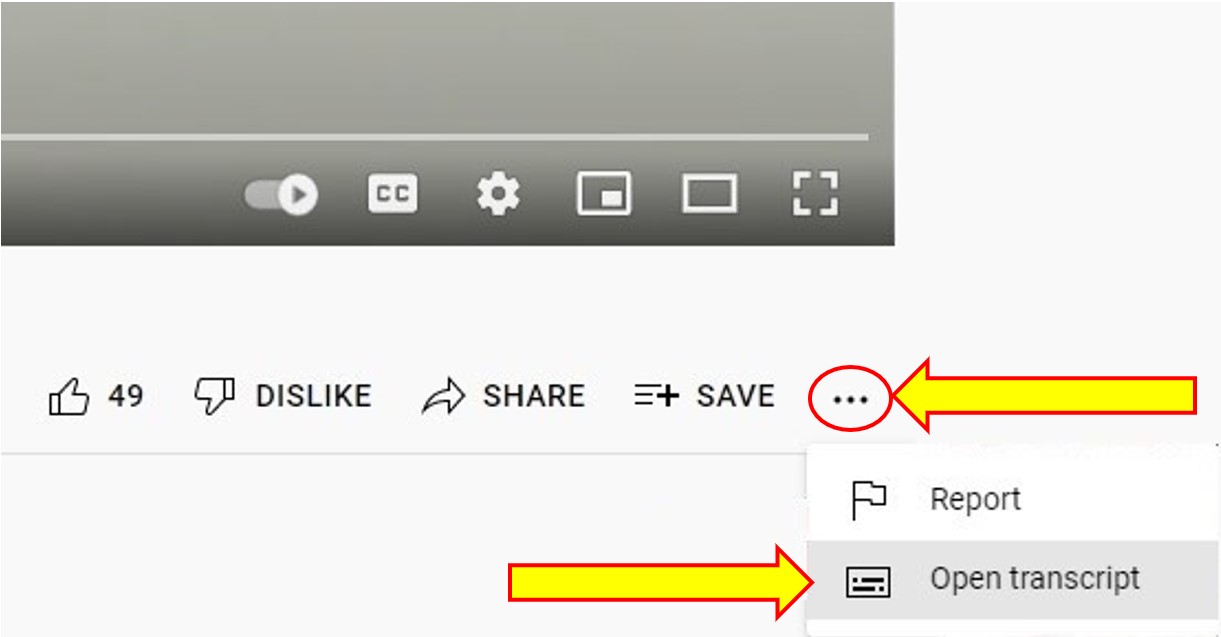Module 02: Research and Exploration
2.4 Take Action!

Doing online research can provide useful information, but to really dig into a career path and get a sense of whether you want to pursue it, or to discover information that will help you to land a job, you’ll need to connect directly with people. Talk to people, get involved in the industry, and get a taste of what working in the field is really like.
In this section, you’ll be introduced to five active methods for career research and exploration:
- Informational Interviews
- Job Shadowing
- Volunteering
- Joining professional associations and organizations
- Work experience
To get you motivated to talk to people in professional fields of interest, watch this advice from Designing Your Life:
Design your Life: Good Networking is like asking directions.
Transcript
To Access the Video Transcript:
1. Click on “YouTube” on the bottom-right of the video. This will take you directly to the YouTube video.
2. Click on the More Actions icon (represented by three horizontal dots)
3. Click on “Open Transcript”

Informational Interviews
An informational interview is a conversation with someone who has knowledge of a field you have interest in. During an informational interview, you can ask questions intended to help you to better understand the field. They are a wonderful way to learn more about a career path while building your professional connections, and do not require a huge time commitment. They do not involve requests for jobs, but are rather a conversation where you can ask an “insider” for advice and insights.
- Who to speak with? Why not start with: professors/instructors, family, friends, neighbours, peers, colleagues, mentors, etc.?
- Locate people on LinkedIn who have jobs in an occupation of interest.
Additional resources:
Example:
During Jane’s first semester of an Office Administration program, she decided she wanted to learn more about the field as well as which work environments would suit her best.
She arranged an informational interview with a woman, Anika Gill, she discovered on Ten Thousand Coffees who works as an Administrative Assistant at a financial institution in a downtown Toronto office. She asks Anika the following questions:
- Could you tell me about your own career path and the path that led to this position?
- What do you like most about your job?
- Can you tell me about a typical day/month on the job?
- From your perspective, what are some of the challenges you see working in this field?
- What do you envision for the future of this field e.g. trends? What skills will become more important?
- Considering your knowledge of the industry, what further reading or research would you suggest I undertake? Are there any association or professional organizations you’d recommend I get involved with?
- Is there anyone else you would suggest I speak with?
Jane is respectful of Anika’s time and thanks her for the insights and advice she has provided. That night, she sends Anika a thank you note:
Hello Anika,
I wanted to thank you again for your time and advice today.
Speaking with you gave me a much more realistic view of what working as an office administrator is like in the financial sector. It has given me a lot to consider and some goals to pursue as I get closer to graduation.
I wish you all the best and look forwarding to staying in touch.
Kind regards,
Jane Career
You don’t always need to have a formal informational interview to learn more about an occupation. Strike up conversations with people you meet to ask what their job is like, what kind of qualifications they need and what they enjoy about their work. You’ll likely find that most people enjoy talking about themselves!

Example:
Daisy recently attended a family friend’s wedding anniversary at an event centre. She got into a conversation with the Event Coordinator, Josh, and thought his job sounded fun but also learned that he worked a lot of weekends and evenings. Josh told her that most, but not all, event coordinator positions would involve some weekend and evening work. Now Daisy can consider what impact the hours and travel required would have on her family, social life, hobbies, and other life commitments and decide if this would be a career to investigate further.
Job Shadowing
Job shadowing is an activity where you visit a place of work and observe someone working in your field of interest, usually for a half- or full-day. By getting a chance to observe someone doing a job, you can get a better sense as to whether it appeals to you. You also get a chance to talk to the person doing the job and ask the same types of questions you’d ask in an informational interview.
Additional Resource
LiveCareer: Job Shadowing Tips

Example:
Adway is a Centennial student who is really interested in fashion and has done some research on working as a Stylist . However, he would like to experience what a typical day is like. He meets a stylist who works for an online fashion site and she agrees to allow Adway to observe her at work for a day. By doing this, he gets a better sense of what a typical day would be like – and he loves everything about it! In talking with the stylist and her colleagues, he also learns about steps he can start taking to work towards landing a Stylist job after graduation.
Volunteering
A great way to try out an area of interest is to find volunteer work in that area (it also gives you experience that you can add to your resume and connects you to people in your field!). Some fields are better suited to volunteering than others. Even if your field doesn’t have many volunteer opportunities, consider looking for a conference in the field and asking if they need volunteers.
Additional Resources

Example:
Gizelle is interested in becoming a Research Analyst. She is enrolled in the Marketing – Research & Analytics program at Centennial and has a Bachelor’s degree in Psychology. She’d like to volunteer at a local community organization to begin assessing what type of environment suits her best. Gizelle writes up a proposal to conduct independent research part-time for three months. By volunteering, she feels more confident in her abilities but has also learned that she prefers to work with a team of people rather than working alone so she sets out to find employment in companies who have teams of research analysts.
Interest Groups and Professional Organizations
By joining groups and organizations (either in person or virtually), you have the opportunity to share information and learn from others with a similar interest. Even if the other members in the group don’t work in the field, they may have information that would be helpful to you. It also gives you an opportunity to improve your knowledge, learn about developments in the field, and engage in a community within your field of interest.
Example:
Kingsley is studying 3D Animation and is thinking about his long-term career plans. He would eventually like to become a Visual Effects Supervisor but isn’t sure what additional training he would need to achieve this goal. Kingsley starts a student club on campus for those interested in 3D Animation and learns from others in the group that to become a Visual Effects Supervisor, he would need to work in the visual effects field for at least five years and build his leadership skills through on-the-job experience as well as training and external courses.
Work Experience
Part-time work, field placements/internships/co-op, and summer jobs can all provide great avenues for exposure to a particular field. These experiences may require that you apply through a formal program and meet certain criteria and can involve a significant time commitment, however they often provide access to professionals working in an area of interest. Work Study on campus is yet another way to get experience in a field of interest and learn more about a particular career.

Example:
Peter, a Software Engineering Technology student, worked two co-op terms, the first one in a large bank and a second one in a small start up company. This experience helped him to realize that a start up environment was a better fit for his personality and lifestyle preferences.


